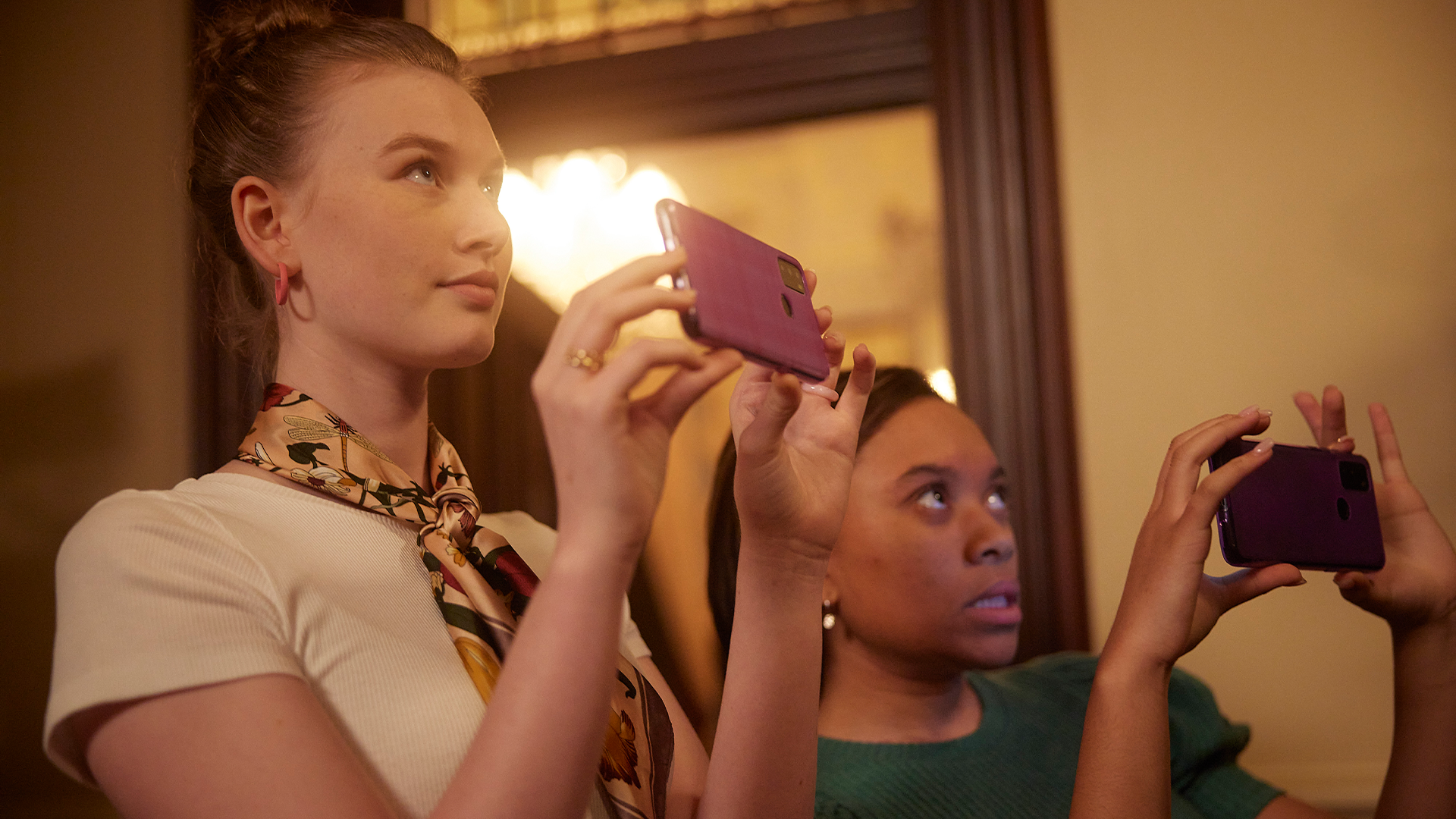
About the Consent and Respectful Relationships Clip Collection

This clip collection is designed to help students understand and practice respectful communication, focusing on concepts of consent, bodily autonomy and personal boundaries.
Understanding and applying strategies for seeking and giving consent is crucial for students’ personal development. As young people navigate their relationships with peers, teachers, and others, it is vital they learn the difference between respectful and disrespectful behaviours.
Key features:
- This clip collection allows students to practice real-life situations, such as asking for permission to leave the room, borrowing other personal belongings, respecting others' personal space, and understanding how body language and tone contribute to how consent is communicated.
- The activities encourage open discussions about boundaries, ensuring students feel confident in expressing their opinions and making choices that support their well-being.
- Each section includes three short clips from Australian television programs that highlight key themes and scenarios related to consent and respectful communication, followed by corresponding activities.
- Teachers have the flexibility to pick and choose the clips and activities that best align with their students’ learning needs and development.
- For older students, the resource covers more complex topics such as sexual consent and online behaviour. Australian Curriculum Links are outlined at the conclusion of each lesson.
By incorporating these lessons into their teaching, educators can support students in building a strong foundation for healthy relationships, both now and in the future, helping them navigate complex social situations with empathy and respect.
When using this resource, we encourage teachers to:
Set positive ground rules: Establish clear, respectful guidelines for discussions and activities, ensuring students feel safe to share their thoughts and opinions. Help students differentiate between respectful and disrespectful behaviours, focusing on empathy, self-awareness, and healthy communication. Promote an atmosphere of respect, active listening, and openness.
Foster open discussions: Create a space where students can discuss boundaries, personal space, and the role of body language and tone in communicating consent. Encourage reflection and sharing of experiences, promoting empathy and understanding.
Ensure safety and confidence: Establish a supportive classroom environment where students feel comfortable expressing themselves and asking questions. Reinforce the importance of respecting boundaries and ensuring physical and emotional safety.
Outline support available: Make students aware of school services, such as counselling, peer support programs, Kids Helpline, for additional help with navigating sensitive topics and maintaining healthy relationships. Ensure students know where to seek support if needed.
Additional Resources
Resources by States and Territories
ACTF suggests using this curated clip collection in conjunction with the resources provided by your education department.
Australian Capital Territory
- Respectful Relationships Education Resources A collection of teaching resources for respectful relationships education in ACT schools.
New South Wales
- Child protection and respectful relationships education Guidelines and materials to support consent education in NSW schools, promoting mental health and wellbeing.
Northern Territory
- Social and Emotional Learning - Resources covering key topics affecting students’ social and emotional wellbeing.
Queensland
- Respectful Relationships Resources Provides Queensland educators with tools to teach respectful relationships and promote emotional literacy.
South Australia
- Consent and Sexual Consent Resources Resources focusing on consent and sexual consent education in South Australian schools to ensure safety and wellbeing.
Tasmania
- Respectful Relationships Education (Tasmania) Tasmanian government site offering resources and support for respectful relationships education in schools.
Victoria
- Respectful Relationships Education A comprehensive framework and resources that help schools teach students about respectful relationships, emotional literacy, and consent from early years to secondary school.
-
Resilience, Rights and Respectful Relationships Learning materials designed for teachers in primary and secondary schools to develop students' social, emotional and positive relationship skills.
Other resources
- Kids Helpline – Consent and Respect Provides information and advice on how young people can understand and communicate consent in both in-person and online situations.
- Sexting and Image-Based Abuse (eSafety Commissioner, Australia) The eSafety Commissioner's website offers resources for educators and students about online safety, image-based abuse, and respectful online behaviour, including consent.
- The Line – Respectful Relationships A website offering interactive resources and activities aimed at educating students about healthy relationships, consent, and respectful behaviours.
- ReachOut – Relationships and Consent Provides practical tools and resources to help students navigate relationships and learn about setting boundaries and seeking consent.
- Love Bites (The Northern Centre, Australia) A relationship education program for secondary students that explores consent, healthy relationships, and personal safety through engaging, interactive learning.
- Australian Human Rights Commission – Sexual Harassment and Consent Resources A collection of resources from the Australian Human Rights Commission that address sexual harassment, consent, and respectful behavior in various settings, including schools.
Kids Helpline
If any of the content in this learning resource raises any issues for students, Kids Helpline’s qualified counsellors are available via WebChat, phone or email anytime and for any reason. Kids Helpline is Australia’s only free (even from a mobile), confidential 24/7 online and phone counselling service for young people aged 5 to 25. Visit kidshelpline.com.au or call 1800 55 1800.